Best CPU for gaming in 2024
Fire up your rig with the best CPU for gaming. More cores, more clocks, more of everything that matters.
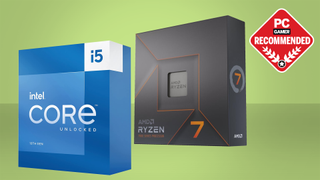
⚙️ The list in brief
1. Best gaming CPU
2. Best budget
3. Best all-rounder
4. Best Intel high-end
5. Best AMD high-end
6. Best AMD AM4 upgrade
7. Best CPU graphics
8. FAQ
9. CPU review list
10. Jargon buster
The best gaming CPU is one of the most hotly contested titles in the industry, changing hands with each successive new generation of processors. Both Intel and AMD have some excellent CPU contenders in the mix, but on this hallowed page, we'll reveal the very best.
Now AMD has launched its mega-cache X3D CPUs we're seeing some stiff competition for Intel, and the best gaming CPU is now the mighty AMD Ryzen 7 7800X3D, although for a much more affordable option it'd be well worth your time to grab the best budget CPU, the Intel Core i5 13400F. The Intel Core i5 13600K is still the best CPU as an all-rounder, and that's true even now it's launched the 14th Gen, because the Core i9 14900K and Core i5 14600K are just refreshes of the previous chips, with little to no real-world performance gain.
On the more affordable side there's the Core i5 13400F. AMD also keeps making its Ryzen 5000-series CPUs just that much cheaper, which is great if you already have an AM4 motherboard and need an upgrade. And if you can't afford the ludicrous costs of a new graphics card in your PC build, the new AMD Ryzen 7 8700G can deliver 1080p gaming performance without the need for a discrete GPU.

Jacob knows a thing or two about CPUs. The first being which to spend your hard-earned money on; he's tested, benchmarked, and tinkered with chips from Intel and AMD going back half a decade. The second is what not to do when overclocking to keep your processor alive. He's killed a chip or two in his time, but all in the name of science. Promise.
The quick list
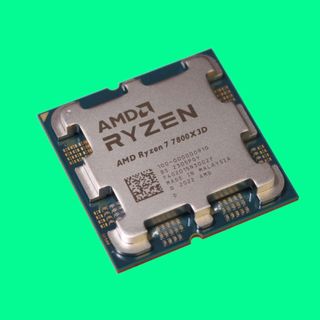
The best gaming CPU
While the Core i5 13600K is the best all-round CPU we'd recommend for most gamers, if all you want is the chip that will deliver the highest frame rates, and forget all that multithreaded performance, the 7800X3D is it.
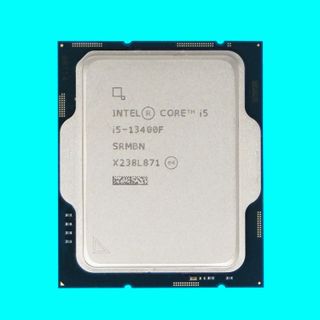
The best budget CPU
The 13400F is a mighty little chip, with excellent performance for really very little money. Intel outperforms AMD quite handily in the budget space in both gaming and multithreading.
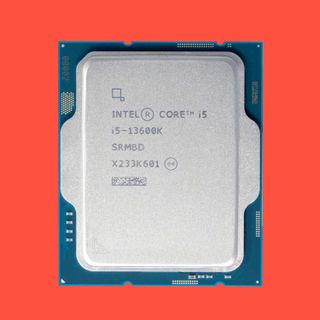
The best all-rounder CPU
Intel may have released a Raptor Lake refresh of these 13th Gen chips, dubbed the 14th Gen, but the performance of the 13600K is more or less identical to the 14600K and comes in cheaper. Bit of a no-brainer, right?
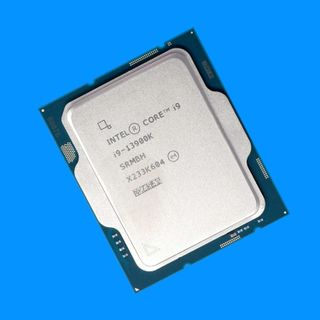
The best Intel high-end CPU
Forget about the latest, and arguably fastest Intel chip, the 14900K, the 13900K is a little cheaper, actually performs identically, and that means for both gaming and high-end productivity the last-gen Intel CPU is still the best.
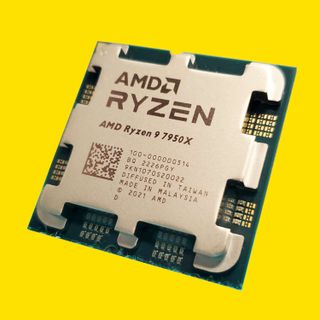
The best AMD high-end CPU
Given the fact the Ryzen 9 7950X3D comes with the game-boosting 3D V-cache you could argue that's the best, but the original 7950X is able to push all of its 16 cores to their fullest, making it the meatier of AMD's processing giants.
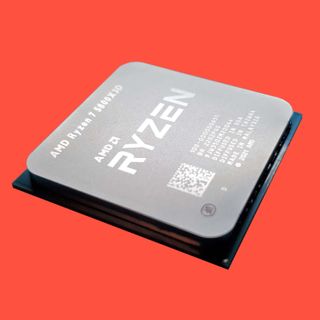
The best AMD AM4 upgrade
The AMD AM4 motherboard platform has been around since before Ryzen appeared, so chances are that if you have a Ryzen-based PC, it's using AM4. That platform isn't being updated now making the 5800X3D is the final word for its CPUs
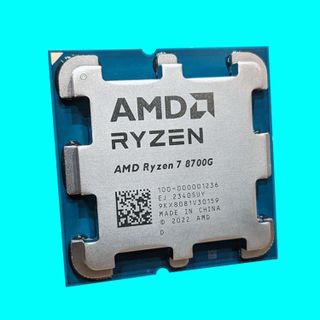
The best integrated graphics
AMD has finally released its Phoenix APU as a desktop chip, and this Ryzen 7 version has the full 780M iGPU which is able to deliver 1080p gaming without a graphics card. For a $330 chip it's something you could create a great budget machine around.
Recent updates
Updated March 13 to freshen up our categorisation, moving the Ryzen 7 7800X3D to the best gaming CPU and Core i5 13600K to best all-rounder.
Best gaming CPU



Specifications
Reasons to buy
Reasons to avoid
✅ If you want the best performing gaming CPU: While the 7800X3D isn't the best multi-tasker, its gaming performance is mightily impressive.
✅ If you want a chip that runs cool and efficient: The 7800X3D is remarkably easy-going given the performance on tap.
❌ If you want an all-rounder: While this chip isn't a complete slouch in productivity tasks, there are far better if you're looking for multi-core creative beast.
❌ If you want the best bang for your buck: If it's a gaming CPU you're after, this is the best. However, the i5 13600K below is cheaper and still delivers great gaming numbers, with superb productivity credentials too.
The AMD Ryzen 7 7800X3D is simply the best gaming CPU around right now. It's certainly the best gaming chip that AMD has ever made, but it's also capably outperforming Intel's top CPU when it comes to gaming frame rates, and is doing so for a lot less cash.
It's also a lot less thirsty, too.
That's possibly one of the most intriguing things about the 3D V-Cache processors of the Zen 4 generation—just how much more efficient they are than the first top-end chips of the Ryzen 7000-series. In fact, with every subsequent release of this new generation AMD has improved its latest processor range, making the previous ones almost redundant.
The Ryzen 9 7950X3D was the first of the new 3D V-Cache chips to hit our test bench, and it offers a mix of high-end gaming performance and a full 16-cores of Zen 4 processing. But its hybrid design, which offered one eight-core chiplet (or CCD) with the extra 64MB of L3 cache fused on top of it and another CCD without, demanded some extra hoops for the operating system to jump through, and also sacrificed some of a standard 16-core chip's raw multithreaded performance.
If you want the absolute highest gaming frame rates, and care not a jot for the CPU-intensive distractions of rendering or encoding, then AMD's latest chip is the processor for you. It wears its gaming predilections on its sleeve, and delivers performance that could make a Core i9 blush.
And at $450/AU$589 it's a lot more than the Intel Core i5 13600K/F. That's a ~$300 chip that sports 14 cores and 20 threads of compute power. It will also top 5GHz and can actually be overclocked.
Sure, the Intel i5 delivers slightly slower 1080p gaming frame rates at 1080p, but that performance delta will all but vanish at 1440p and 4K. And in the productivity stakes you've then got a more rounded processor, one which is more capable at multi-threaded workloads if you're into doing anything with your PC other than purely gaming.
Plus you get another $150 to spend on your graphics card if you're looking at building a new machine from scratch. Though, admittedly in these times that doesn't necessarily equate to a higher tier of GPU…
But those are the sensible facts and figures, and the Ryzen 7 7800X3D is still the fastest gaming CPU I've ever tested. So, if you want the absolute highest possible frame rates the extra cacheola on top of this Zen 4 chiplet is going to do the business.
You want a cool and quiet gaming PC that's capable of the absolute fastest gaming frame rates? Then grab a 7800X3D, people.
Read our full AMD Ryzen 7 7800X3D review.
Best budget CPU for gaming



Specifications
Reasons to buy
Reasons to avoid
✅ If you want budget gaming performance: Yep, this might be a cheap chip, but boy is it cheerful. The benchmarks don't lie: This little beastie can game.
✅ If you want a lot of cores: Ten! Count 'em. That's a lot of CPU for the money, and really, quite a lot of CPU in general.
❌ If you're looking for a content creation chip: AMD's cheaper Zen 4 chips out-pace the little Intel in rendering benchmarks, as well as of course its bigger brothers.
❌ If you want the best bang for your buck: If it's a gaming CPU you're after, this is the best. However, the i5 13600K below is cheaper and still delivers great gaming numbers, with superb productivity too.
For a gaming PC, there's no better value CPU than a Core i5. For most of 2022, we recommended the Core i5 12600K for the best gaming CPU and the Core i5 12400 as the best gaming CPU on a budget. Last year, the Core i5 13600K took over the top spot. And now, the Core i5 13400F pushes Alder Lake out of the running with an even more impressive specification for the money, making it the best budget CPU you can currently buy.
The Intel Core i5 13400F is a processor I've been waiting patiently to test since I first heard wind of it last year. You'll understand why once you read these specs: A 10-core processor made up of six Performance-cores (P-cores) and four Efficient-cores (E-cores), the Core i5 13400F has a total of 16 threads. Its fastest cores will run up to 4.6GHz out of the box, a clock speed that wouldn't have seemed out of place on the box of a Core i7 only a few years back.
For that impressive spec, the Core i5 has been given an Intel-recommended price tag of $196/AU$329. Consider the other options: that's a handful of dollars more than the Core i5 12400 from years previous, or $33 cheaper than AMD's Ryzen 5 7600.
All of which means, as someone who has been happily running an Intel Core i7 6700K over the past six or seven years, and which now resides in a PC I built for my partner, this is the first time I've considered upgrading my old 6700K for something newer.
The Core i5 13400F is only a handful of frames shy of the Core i9 13900K in Total War: Three Kingdoms, Metro Exodus, and F1 2021. In Far Cry 6, this chip is significantly slower than Intel's high-end processors, however, showing Far Cry 6 to be a more CPU-limited game than the others. To a lesser extent, the same is true for Shadow of the Tomb Raider.
Yet even in these two games where the Core i5 13400F falls off the pace of the faster 13th Gen processors, it remains quicker than last year's best gaming CPU, the Core i5 12600K. It's also significantly faster than the Core i5 12400, though is more power-hungry for it.
In our testing, neither the Core i5 13400F or Ryzen 5 7600X can claim an outright win across the testing suite, though when AMD's chip is faster, it is quite a bit faster. AMD's chip does come out as the clear winner on the productivity and content creation side of things, but it is that much more expensive for it. AMD-compatible motherboards have tended to fall on the expensive side versus the cheaper Intel-compatible 600-series boards, but there are now some cheaper options coming through. That said, the Core i5 13400F is around $210 on Newegg at time of writing, and the Ryzen 5 7600 is only $229.
Intel's platform is surprisingly cheap for the inclusion of both the latest 700-series motherboards and older 600-series motherboards. Similarly, we're saving a little cash here on the 'F' designated model. The 'F' denotes the Core i5 13400F's lack of integrated graphics, which isn't a deal breaker by any stretch of the imagination. Generally, that integrated GPU isn't going to come much in handy for gaming, and even today's cheapest discrete graphics card will outperform it by a country mile.
While the Core i5 13600K remains the pick for the best gaming CPU, and AMD is very competitive in the ~$275 market, Intel's Core i5 13400F is a shoe-in for the best budget gaming CPU in 2023.
Read our full Intel Core i5 13400F review.
The best all-rounder CPU



Specifications
Reasons to buy
Reasons to avoid
✅ If you want excellent all-round performance: It's tempting to call the i5 13600K a jack-of-all-trades, but it's really a master of many. Great gaming, great productivity, great in general.
✅ If you want a power-efficient Intel chip: Some of Intel's high-performance offerings can be thirsty, but this particular model bucks the trend.
❌ If you want maximum gaming performance: Make no mistake, the i5 13600K is a great gaming CPU, but those looking for the absolute cutting edge of performance would be better off with the 7800X3D.
The Intel Core i5 13600K is another mighty mid-range chip from Intel, and you can expect a major uplift in core counts even with this more parsimoniously priced Raptor Lake chip. Well-tuned to deliver high gaming frame rates, this is ultimately the chip most gamers should consider first for their next gaming PC. It's cheaper than the newer Core i5 14600K, but has the same essential core makeup and actually performs identically.
The Core i5 13600K is a 14-core processor, made up of six Hyper-Threaded Performance-cores (P-cores) and eight Efficient-cores (E-cores), for a total of 20 threads. That's four more E-cores than this chip's predecessor, the Core i5 12600K, but don't be fooled by the E-cores's diminutive name and silicon footprint.
Those four extra cores make for a significant increase in multithreaded performance. The Core i5 13600K's single-threaded Cinebench score? Exactly the same as a Core i9 12900K.
Alright, real-life performance won't see the Core i5 13600K matching the Core i9 12900K in every regard, but it really does deliver something similar in gaming for a lot less money. In three out of six games I've tested, the Core i5 13600K matches the pace of the Core i9 12900K.
We're once again seeing the best gaming chip come from the lower rungs of the stack with Raptor Lake. The Core i5 13600K delivers exceptional gaming performance in a sensibly priced package, delivering only a handful of frames less than the processors that fetch double the asking price. For a gaming PC build in 2023, this is absolutely the chip I'd recommend to most.
But I'd go one further than that. The inclusion of four more E-cores turns this processor into a 14-core chip with the multithreaded performance to deliver in high-demand applications, and that makes it a great fit for streaming, content creation, editing, and more.
The Core i5 13600K is much more of an all-round powerhouse than I had expected it to be.
Read our full Intel Core i5 13600K review.
Best high-end Intel CPU





Specifications
Reasons to buy
Reasons to avoid
✅ If you want ultimate all-round performance: While the Core i5 13600K is still the better buy for most, the 13900K is simply dominant in most benchmarks.
❌ If you don't need the very top: The Intel Core i9 13900K is a mighty, benchmark shredding chip. Do you really, really need one? Probably not.
❌ If you want efficient: It runs hot, and it gobbles down power. Given the performance here, you shouldn't be too surprised.
Intel's Core i9 13900K is spectacularly good at what it does, and what it does is pretty much everything, which makes it the best high-end Intel CPU overall. Gaming? Of course, it can push high frame rates alongside the latest GPUs. Multitasking? Yep, easy. With 24 cores it's perfectly suited to lots of stuff happening all at once. High-demand creative workloads? Absolutely, it barely breaks a sweat.
Intel's hybrid architecture has really come into its own with the Core i9 13900K, though hasn't really pushed anything forward with its Core i9 14900K refresh. And that's why we're still sticking with this cheaper chip, that performs just as well. Throw it at any problem, and it's likely going to solve it in record time.
The Core i9 13900K actually makes ex-HEDT chips look slow by comparison. In fact, Intel's Core i9 13900K is almost 10,000 points clear of the Core i9 12900K in Cinebench R23. In the Blender Junk Shop benchmark, the Core i9 13900K is 60% faster than the Alder Lake chip.
If you want lots of speedy threads to throw at creative apps, this is it.
When it comes to gaming performance, the Core i9 13900K is equally impressive. This chip does little to hold back a modern high-end GPU, such as the RTX 3080 we're testing with, and I have no doubts it'll make the best pairing with Nvidia's new RTX 4090, too. Minimum and 1%/0.1% lows were also impressively high and consistently so, which is a good marker of CPU performance nowaday.
Now for some PC builders, that's an easy buy. This chip is immense at everything it does. But I would suggest that most PC gamers with a moderate budget will want to look at the Intel Core i5 13600K, and anyone looking for the pure pace in games to look at AMD's Ryzen 7 7800X3D.
But to say the Core i9 13900K is too expensive would be wrong. It's actually, surprisingly priced roughly the same as a Core i9 12900K, despite being much faster, offering eight more cores, and arriving on a now cheaper platform.
I'm not going to belabour the point. This is a mighty processor at a surprisingly reasonable price for a high-end chip, and a lot of builders will want one simply because it's the best of the best.
Read our full Intel Core i9 13900K review.
Best high-end AMD CPU






Specifications
Reasons to buy
Reasons to avoid
✅ If you want huge multithreading performance: Says it all really, doesn't it? The Ryzen 9 7950X is a productivity and creativity monster.
✅ If you want a chip that can switch to Eco mode with very few drawbacks: At 65W, the big Ryzen sips power and still delivers brilliant performance, with the full fat 170W mode kept in reserve for number crunching and top-level gaming.
❌ If you want an all-rounder: While this chip isn't a complete slouch in productivity tasks, there are far better if you're looking for multi-core creative beast.
❌ If you want a gaming performer above all else: That'll be our best gaming CPU, the 7800X3D that you're after then.
The AMD Ryzen 9 7950X was the vanguard for a whole new generation of CPUs and GPUs from the red team. But, despite its many advances, a whole new AM5 motherboard platform, and shiny heatspreader design, this isn't the best gaming CPU we were hoping for.
I mean, it's good. And certainly smashes the 16-core Ryzen 9 5950X from the Zen 3 generation, but this Zen 4 chip has a resurgent Intel CPU architecture to deal with in Alder Lake and Raptor Lake. With the Core i9 13900K offering so many cores itself now, it's very much encroaching on the hallowed high core count space of the Ryzen 7 7950X.
The Ryzen 9 7950X is an evolution of the Zen 3 design, and is at once a brute of a processor, running at the ragged edge of its thermal constraints, and yet with an impressively elegant design. Even on the outside—Yeah, I'll say it, I love that new heatspreader look.
But it's still not the processor I'd pick up today and there's a chance it might get savaged out there for being more of a derivative than a revolutionary CPU. There's no spectacular new tech on display, no vertically bonded cache chips, no extra cores, just a healthy clock speed bump, some finessed microarchitecture, and a new socket.
It is certainly fast. I did a bit of a double take checking out the numbers when I saw the Cinebench R23 single thread run tipping the odd core up to 5.9GHz. Even stable at 5.8GHz was pretty shocking. It's not quite that high under all-core load, but 5.4GHz across all 16 cores still makes it one blazing chip.
It's blazing in another way, too, because damn, does this thing get hot?! Actually, no. It's okay. AMD says that "At 95 degrees it is not running hot, rather it will intentionally go to this temperature as much as possible under load because the power management system knows that this is the ideal way to squeeze the most performance out of the chip without damaging it."
But does fast and hot make it the ultimate gaming processor? Not really, not at all in fact. On that score, it will often get outperformed by the eight-core Ryzen 7 7700X which launches alongside it. It is comfortably faster than the previous generation's Ryzen 9 5950X, which is important, especially as that was priced some $100 higher on release.
You will likely see a lot made about it being a disappointing release. But, to me, it feels like a confident, consistent release. You could argue it's maybe not super ambitious, but AMD has got where it is today by always delivering on its Zen promises, and yet again Dr. Su's gang has absolutely done that.
The Ryzen 9 7950X is great for throwing cores at a problem and making it go away, but it's not quite the all-round best gaming CPU we were hoping for.
Read our full AMD Ryzen 9 7950X review.
Best AMD AM4 CPU upgrade





Specifications
Reasons to buy
Reasons to avoid
✅ If you want great gaming on AM4: The 5800X3D delivers excellent gaming benchmarks even compared to some of the most recent AM5 Zen 4 chips, and makes a great upgrade to an AM4 system.
❌ If you want something cool running: The 5800X3D likes to run hot, and needs a good cooling solution to keep it in line.
❌ If you're on a tight budget: The 5800X3D is a very popular CPU, and tends to hold its value. Similar performance Zen 4 chips like the 7700X are often roughly the same money.
At launch, the AMD Ryzen 7 5800X3D was the fastest gaming processor the red team had ever made. It's not so much anymore, but it remains the best bet for gaming performance if you're stuck with an AM4 motherboard.
AMD's chip was and still is a technically impressive beast, using the latest packaging processes from TSMC to bung an inordinate amount of cache into its new CPU. Because, after all, what do you do when you can't squeeze any higher frequencies out of your processor architecture? You stick a whole lot more cache memory into it and hope for the best. That's what AMD has done on the GPU side with its Infinity Cache, pairing up to 128MB with its RDNA 2 graphics cards, to great effect, and now it's doing the same to its CPUs.
The Ryzen 7 5800X3D is architecturally identical to the standard Ryzen 7 5800X, using the same Zen 3 processor design, and therefore the same chiplet setup that has made AMD's recent generations of CPU such world-beaters. That means you're getting the same eight-core, 16-thread layout in a single chiplet (so no potential inter-chiplet latency issues), but a slightly slower clock speed because of a necessarily lower voltage.
In general, the Ryzen 7 5800X3D either essentially matches or outperforms the Ryzen 9 5950X. That's a great result considering the top Ryzen is still an expensive CPU, and more than ever just a productivity chip and little else. There are also a few times where the CPU outperforms the standard Core i9 12900K, which again is a great achievement. Though, for the most part, it lags behind the Golden Cove microarchitecture of the Alder Lake part when it comes to gaming. Let alone Raptor Lake.
It's a technically elegant, efficient CPU that delivers on its promises. It can't quite beat Intel's hulking brute of a Core i9 12900KS in the frame rate war, but it still offers the majority of AMD users an easy upgrade path to gaming performance that is not far off. And for a fraction of the price and power demands, too.
Read our full AMD Ryzen 7 5800X3D review.
Best integrated graphics in a CPU





Specifications
Reasons to buy
Reasons to avoid
✅ If you want gaming without the graphics card: If you're putting together a GPU-less light-gaming build, or perhaps looking to run without one for a while before you upgrade, this is the best you'll find.
✅ If you want efficiency: It sips gently, and would make for a great CPU in a power-efficient eco-focussed rig.
❌ If you can stretch to (or fit) a fully-fledged GPU: While the 8700G is a good chip for many reasons, if you are going to pair something with a GPU, there are better candidates.
In case you haven't noticed, graphics cards are pretty expensive. If that puts you off PC gaming, then AMD has something for you: The Ryzen 8000-series APUs include the most powerful integrated graphics ever, and the Ryzen 7 8700G is the top chip of the lot. They're positioned to challenge entry level graphics cards, meaning you might not even need a graphics card for 1080p gaming today.
It's been over a year since AMD announced its Phoenix range of laptop processors. They took their time to come to market, but we did get a good idea of what to expect from a desktop APU by looking at devices like the Asus ROG Ally. Though ostensibly a handheld, it's capable of functioning as a desktop replacement when docked, and delivers genuine gaming performance. If a power-restricted APU in a handheld can do that, its unleashed potential in a desktop form factor sounds pretty exciting to me.
It's now well over a year since the launch of AMD's Zen 4 based Ryzen 7000-series CPUs. They're generally an evolutionary upgrade over the Zen 3 5000-series models. A tweaked front end, a doubling of L2 cache, AVX-512 support and improved branch prediction helped to deliver an IPC gain of around 13%. Add to that clock speed improvements partly thanks to a shift to TSMC's 5nm process (for the Core Complex Dies) and we've got ourselves a competitive AMD CPU family.
The 8700G incorporates many of these improvements, but it is a different beast. Most especially it uses a monolithic die as opposed to the chiplet design of the regular 7000-series CPUs. It includes a dedicated XDNA AI engine, but the major selling point of the 8000-series APUs are their integrated graphics. The Radeon 700M series graphics with up to 12 compute units are powerful enough to play pretty much any current game at 1080p, especially if you enable AMD's upscaling technologies.
But the major selling point of the 8700G is its graphics capabilities. The 8700G includes the top-of-the-line Radeon 780M integrated graphics. It's the most powerful integrated graphics solution ever seen on the desktop. It's based on the RDNA 3 architecture with 12 CUs giving it 768 shader cores clocked at up to 2.9GHz. The Vega 8 IGP of the 5700G is 3 generations behind and clocked at just 2.0GHz. It's not even in the same ballpark.
While I'm happy to shout about the gaming performance of the 8700G, I'm less impressed with its all round CPU performance. Gamers with discrete graphics cards should look towards one of AMD's 7000-series CPUs, or even something like the still excellent Ryzen 7 5800X3D if you're sticking with AM4. That's without even mentioning the plethora of Intel 12th, 13th and 14th Gen options.
Read our full AMD Ryzen 7 8700G review.
Processor FAQ
How do you test CPUs?
While gaming resolutions run from 720p to 4K, we largely test at 1080p. This will show the most significant difference in gaming performance you're likely to see and pushes the CPU into the spotlight instead of the GPU—an Nvidia GeForce RTX 3080 in this case.
We use a mix of motherboards depending on the platform, but all high-end to ensure as level a playing field as we can. These boards include the Asus ROG Maximus Z690 Hero, MSI MPG Z490 Carbon WiFi, ASRock X670E Taichi, and Gigabyte X570 Aorus Master.
When it comes to memory, we use G.Skill Trident Z5 Neo DDR5-6000 CL30 2x 16GB for 13th/12th Gen Intel processors, while 11th Gen processors are tested using Corsair Vengeance Pro RGB sticks at 3,600MHz effective. The AMD AM5 rig uses the same DDR5 memory as the high-end Intel one, however, the AM4 rig uses Thermaltake DDR4 3,600MHz effective.
To further eliminate any bottlenecks, a high-speed PCIe 4.0 NVMe SSD was used across each system, each loaded with Windows 11 and our suite of benchmarking applications and games.
Liquid cooling is also used on all test rigs to ensure these chips are not restricted thermally.
Our benchmark suite includes 3DMark Time Spy, Civ 6's turn benchmark, Total War: Three Kingdoms, Assassin's Creed: Valhalla, Metro Exodus, F1 2021, Shadow of the Tomb Raider, Cinebench R23, SiSoft Sandra, x264 v5, and PCMark 10.
Does your CPU matter for gaming?
The short answer is: yes. The longer answer is that it's more complicated and nuanced than that. You obviously need a CPU in your gaming PC, but the component that has the biggest impact on frame rates is your graphics card. That doesn't mean you can have a weak old processor in your rig and pair it with a high-end GPU and have no worries. You still need your processor to keep your graphics card fed with data to ensure a smooth gaming experience, without that you'll get stutters as the GPU waits for the CPU to catch up.
As with everything it's all about balance. But in modern times, a mainstream CPU won't see you losing out in terms of gaming performance compared to the top chips by anything more than single digit frames per second.
What motherboard is right for my CPU?
Raptor Lake is the most recent Intel platform to be released, and it's compatible with any 600-series motherboard and the newer 700-series ones. These are available supporting DDR5 (new) and DDR4, so pick that side of things carefully.
The latest AMD Ryzen 7000 CPUs use a new AM5 socket, and that means they only work with currently available X670, X670E, and B650 motherboards. Older AM4 motherboards, such as X570, B550, and A520 boards, are not compatible, ending a long line of compatibility there.
Is Intel or AMD better?
This is a rather loaded question. AMD has held the top spot for a long time, with its Zen architecture making for some incredible leaps in performance, but Intel stole the crown with its Alder Lake family, specifically the Core i5 12600K, and made it even better with Raptor Lake and the Core i5 13600K.
It's worth remembering that most games are GPU-limited, which means the graphics card is the limiting factor in terms of performance, and you would likely see the same essential frame rates with either CPU manufacturer when a discrete graphics card is used. This is especially true as you up the resolution, with 4K having little between the top chips.
Should I overclock my CPU?
The honest answer is: no. Overclocking your processor is not necessarily the risky move it once was, but equally, the benefits of doing so have drastically dropped in recent times. When we're talking about gaming performance, having a slightly higher clocked CPU can make a bit of a difference, but arguably your graphics card will be the part that limits the speed of your system.
There is also the point that overclocked CPUs create more heat, require more intensive and expensive cooling solutions, need those coolers to work harder, and are, therefore, often louder.
For us, overclocking your CPU to gain real-world performance benefits is not something we'd recommend most PC gamers do.
CPU review list
AMD CPU reviews:
- AMD Ryzen 5 8600G
- AMD Ryzen 9 7950X3D
- AMD Ryzen 9 7950X
- AMD Ryzen 9 7900
- AMD Ryzen 7 7800X3D
- AMD Ryzen 7 7700X
- AMD Ryzen 7 7700
- AMD Ryzen 9 5950X
- AMD Ryzen 9 5900X
- AMD Ryzen 7 5800X
- AMD Ryzen 7 5700G
- AMD Ryzen 5 5600X
- Threadripper 3970X and 3960X
- AMD Ryzen 9 3950X
- AMD Ryzen 9 3900XT
- AMD Ryzen 9 3900X
- AMD Ryzen 7 3800XT
- AMD Ryzen 7 3700X
- AMD Ryzen 5 3600XT
- AMD Ryzen 7 2700X
- AMD Ryzen 5 2600X
- AMD Ryzen 5 2400G
- AMD Ryzen 3 2200G
- AMD Ryzen 7 1800X, 1700X, and 1700
- Threadripper 1950X and 1920X
- AMD Ryzen 5 1600X, 1600, 1500X, and 1500
- AMD Ryzen 3 1300X and 1200
Intel CPU reviews:
- Intel Core i9 14900K
- Intel Core i7 14700K
- Intel Core i5 14600K
- Intel Core i9 13900K
- Intel Core i5 13600K
- Intel Core i5 13400F
- Intel Core i9 12900K
- Intel Core i5 12600K
- Intel Core i5 12400
- Intel Core i9 11900K
- Intel Core i5 11600K
- Intel Core i5 11400F
- Intel Core i9 10980XE
- Intel Core i9 10900K
- Intel Core i5 10600K
- Intel Core i9 9900K
- Intel Core i7 9700K
- Intel Core i9 7980XE
- Intel Core i9 7960X
- Intel Core i9 7900X
- Intel Core i7 8700K
- Intel Core i7 7700K and Core i5 7600K
- Intel Core i5 8400
CPU jargon buster
Caching - A small segment of high-speed memory dedicated to storing and executing frequently used commands/instructions to speed up software execution. CPUs contain caches designated as Level 1, 2, and 3, with L1 being the fastest and smallest and L3 being the slowest and largest.
Core - Modern CPUs can contain anywhere from two to 70+ cores (in supercomputers), though CPUs housed in most consumer machines will generally carry between four and eight, with AMD's latest CPUs sporting up to 16 cores.
Clock speed - The speed at which a CPU can execute instructions, measured in hertz. A processor with a 3.7 GHz clock speed can process 3.7 billion instructions a second. Clock speed is one of the most critical factors for determining performance in games and workload functions.
Heat sink - A cooling solution for PCs that utilize fans or liquid cooling (active) or aluminum radiators (passive) that rely on convection to regulate a component's temperature.
Hyper-Threading (SMT) - Intel terminology for a tech that allows a processor to handle two sets of instructions 'threads' simultaneously. AMD and other CPU vendors call this SMT, Simultaneous Multi-Threading.
Socket type LGA (Land Grid Array), PGA (Pin Grid Array), or BGA (Ball Grid Array) - The way a CPU interfaces with the socket on a motherboard. LGA is used on Intel sockets with pins as part of the socket. AMD's AM4 solution, PGA, has the processors' pins, which fit into holes on the socket. AMD's Threadripper CPUs also use LGA sockets. A BGA socket is when the processor is permanently soldered to the motherboard, typically on a laptop.
TDP - Thermal design power, the maximum amount of heat a system or chip can produce that the attendant cooling system is designed to deal with under workload. This term can apply to PCs as a whole, GPUs, CPUs, or nearly any other performance component that generates heat and is in large part an indicator of how much power a part draws.
Thread - A thread refers to a series of CPU instructions for a specific program. Older CPUs and SMT disabled run one thread per core, but most modern AMD and Intel CPUs can simultaneously run two threads, sharing some resources (e.g., cache).
Turbo Boost - Intel technology that allows processors to run at higher clock speeds under demanding loads. AMD also supports turbo or boost clocks, and we use the terms interchangeably regardless of CPU vendor.
The biggest gaming news, reviews and hardware deals
Keep up to date with the most important stories and the best deals, as picked by the PC Gamer team.

Jacob earned his first byline writing for his own tech blog. From there, he graduated to professionally breaking things as hardware writer at PCGamesN, and would go on to run the team as hardware editor. Since then he's joined PC Gamer's top staff as senior hardware editor, where he spends his days reporting on the latest developments in the technology and gaming industries and testing the newest PC components.
- Dave JamesManaging Editor, Hardware
- Jeremy LairdHardware writer
Most Popular



